P.12 TAKE ON TRENDS: REGIONAL TECH LEADERS SHARE INSIGHTS ON EMERGING DEVELOPMENTS
P.15
CYBER RESILIENCE UNLOCKED: HOW RUBRIK IS REDEFINING DATA SECURITY WITH AI SOLUTIONS


P.12 TAKE ON TRENDS: REGIONAL TECH LEADERS SHARE INSIGHTS ON EMERGING DEVELOPMENTS
P.15
CYBER RESILIENCE UNLOCKED: HOW RUBRIK IS REDEFINING DATA SECURITY WITH AI SOLUTIONS

THE WHO’S WHO OF TECH DESCENDS ON RIYADH FOR LEAP 2025 . TAHALUF’S ANNABELLE MANDER AND ABDULAZIZ ALGHURAYR SHARE EXCLUSIVE INSIGHTS





2025
GULF BUSINESS BREAKFAST (DUBAI, UAE)
BREAKING GROUND: e UAE real estate outlook

2025
GULF BUSINESS BREAKFAST (RIYADH, KSA)
FINTECH FRONTIERS: Focus on AI, DeFi and digital payments

2025
GULF BUSINESS BREAKFAST (DUBAI, UAE)
TECH AMBITIONS: How the UAE is becoming an AI, blockchain leader


2025
GULF BUSINESS BREAKFAST (DUBAI, UAE)
TRADING AHEAD: State of the UAE’s online investment sector

2025
GULF BUSINESS AWARDS (DUBAI, UAE)
Recognising the best in key sectors across the GCC

2025
GULF BUSINESS BREAKFAST (DUBAI, UAE)
BUILDING TOMORROW: Innovations and sustainability in UAE real estate



BY





For Intel, LEAP 2025 offers a strategic platform to showcase its latest technological advancements and engage with a diverse audience of industry leaders, innovators, and investors.”
TAHA KHALIFA, GM MIDDLE EAST AND AFRICA, INTEL

Tahaluf is gearing up to deliver an ambitious showcase in Riyadh at LEAP 2025. Annabelle Mander, EVP at Tahaluf, and Abdulaziz
Alghurayr, director of office and government liaison, share details

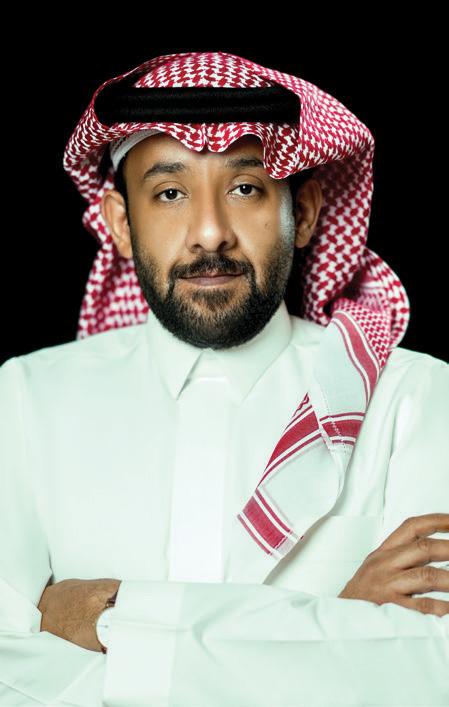







How will emerging technologies shape the future of cybersecurity, AI and cloud solutions in the Gulf region? Experts give us their insights



































GenAI can expose the business to many risks, ranging from privacy violations to an array of data-related prejudices that can arise when building and using machine-learning models
A proactive stance on clean tech is reshaping how economic growth can align with sustainability

HEAD OFFICE: Media One Tower, Dubai Media City, PO Box 2331, Dubai, UAE, Tel: +971 4 427 3000, Fax: +971 4 428 2260, motivate@motivate.ae
DUBAI MEDIA CITY: SD 2-94, 2nd Floor, Building 2, Dubai, UAE, Tel: +971 4 390 3550, Fax: +971 4 390 4845
ABU DHABI: PO Box 43072, UAE, Tel: +971 2 677 2005, Fax: +971 2 677 0124, motivate-adh@motivate.ae
SAUDI ARABIA: Regus Offices No. 455 - 456, 4th Floor, Hamad Tower, King Fahad Road, Al Olaya, Riyadh, Saudi Arabia, Tel: +966 11 834 3595 / +966 11 834 3596, motivate@motivate.ae
LONDON: Acre House, 11/15 William Road, London NW1 3ER, UK, motivateuk@motivate.ae
Cover: Freddie N. Colinares
Editor-in-chief
Obaid Humaid Al Tayer
Managing partner and group editor Ian Fairservice
Chief commercial officer
Anthony Milne anthony@motivate.ae
Publisher Manish Chopra manish.chopra@motivate.ae
EDITORIAL
Group editor
Gareth van Zyl Gareth.Vanzyl@motivate.ae
Editor Neesha Salian neesha@motivate.ae
Senior feature writer Kudakwashe Muzoriwa Kudakwashe.Muzoriwa@motivate.ae
Reporter
Nida Sohail Nida.Sohail@motivate.ae
Senior art director
Freddie N. Colinares freddie@motivate.ae
General manager – production S Sunil Kumar
Production manager Binu Purandaran
Production supervisor
Venita Pinto
SALES & MARKETING
Digital sales director
Mario Saaiby mario.saaiby@motivate.ae
Group marketing manager
Joelle AlBeaino
joelle.albeaino@motivate.ae
BUILDING ON THE RECORD-BREAKING ACHIEVEMENTS OF 2024, TAHALUF, THE ORGANISERS BEHIND ONE OF THE REGION’S LEADING TECH EVENTS, ARE GEARING UP TO DELIVER AN EVEN MORE AMBITIOUS SHOWCASE IN RIYADH FOR 2025. WE HEAR FROM ANNABELLE MANDER, EXECUTIVE VICE PRESIDENT AT TAHALUF, AND ABDULAZIZ ALGHURAYR, DIRECTOR OF OFFICE AND GOVERNMENT LIAISON, AS THEY SHARE INSIGHTS INTO WHAT’S NEXT FOR THIS TRANSFORMATIVE EVENT





In just four years, Saudi Arabia’s showpiece technology event, LEAP, has gone from a bold debut to one of the most talked-about gatherings on the planet.
Now, the global award-winning conference is back for its fourth edition, set to run from February 9-12, 2025, at the Riyadh Exhibition & Convention Centre in Malham.
This year’s event is already making waves, not just for its scale but for its ambition. Under the theme ‘Into New Worlds,’ LEAP 2025 is taking a new direction with its first-ever ticketed model. The goal? To draw an even higher percentage of top-tier attendees — industry leaders, investors, and decision-makers — to supercharge business networking and investment opportunities.
“LEAP has enjoyed remarkable momentum from day one,” says Annabelle Mander, executive vice president at Tahaluf.
“In 2022, we set a record as the largest debut tech event in history. By 2024, we had more than tripled in size, becoming the most attended tech event in the world. Now that we’ve established our scale, we’re concentrating on delivering tangible business outcomes,” she tells Gulf Business.

Last year’s stats underscore that meteoric rise: 215,000 attendees from 177 countries, 1,600 investors managing $4.5tn in assets under management (AUM), and more than $11.9bn in announced investments.
For Mander, the numbers tell a compelling story, but the real focus now is on building a vibrant ecosystem where startups, entrepreneurs, and tech giants can collaborate to accelerate Saudi Arabia’s tech-driven ambitions.
This year, LEAP 2025 promises even more with 1,800 global tech brands, 680 startups, and 1,000 expert speakers showcasing next-gen solutions in sectors such as space, gaming, education, and smart cities.
Heavyweights like Google Cloud, Huawei, Meta, Zoom, AWS, STC, Aramco, and NEOM are leading the charge. Meanwhile, other top global brands such as L’Oréal are making a LEAP debut, bringing 20 cutting-edge technologies to the show floor.
Artificial intelligence is no longer just a futuristic concept; it is a thriving industry driving transformation across every sector.
Globally, the AI market was valued at $638bn in 2024 and is projected to grow at a compound annual growth rate (CAGR) of 19.1 per cent, reaching an estimated $3.7tn by 2034, according to Precedence Research.
Saudi Arabia is carving out a significant role in this booming industry, aligning with its Vision 2030 ambition to diversify the economy through technological innovation. The kingdom’s AI market was valued at $1bn in 2024 and is expected to grow at a CAGR of 15.6 per cent, reaching $4bn by 2033, as per IMARC Group.
In Saudi Arabia, these trends are complemented by large-scale government-backed initiatives like the $100bn Project Transcendence, which aims to position the kingdom as a global hub for AI innovation.
And as artificial intelligence continues to shape industries and redefine possibilities in Saudi Arabia and across the globe, DeepFest 2025 — which is co-located with LEAP 2025 — is set to take centre stage. Dubbed the world’s premier AI-focused conference, DeepFest

2025 is organised by Tahaluf and powered by the Saudi Data and Artificial Intelligence Authority (SDAIA).
DeepFest 2025 is expected to draw over 48,000 attendees, alongside 150 speakers and 120 exhibitors, with the Kingdom’s ambitious Project Transcendence initiative serving as its visionary backdrop.
Some of the brightest minds in AI will be speaking at DeepFest 2025, including Aidan Gomez, co-founder and CEO of Cohere; Marc Raibert, founder of Boston Dynamics; Dr Daniela Braga, CEO of Defined.AI; and Lambert Hogenhout, chief of data and AI at the United Nations. Discussions will explore critical themes such as AI ethics, governance, and sustainability.
The event promises a mix of live demos and immersive experiences. For example, Jonathan Ross, founder and CEO of Groq, is set to present the AI Groqchip, a breakthrough in scalable AI computing, while Marcello Mari, CEO of SingularityDAO, will conduct a live interview with his AI avatar, exploring what decentralised AI could mean for humanity.
Humanoid robots by UB Tech and Pudu Robotics will share the floor with attendees, while tech couture by Dutch designer Anouk Wipprecht will blur the lines between fashion and technology with her interactive robotic dress.
The transformative potential of AI in healthcare will also be a major theme at DeepFest 2025. Jean-Charles Samuelian-Werve, CEO of Alan, will demonstrate ‘Mo,’ a Doctor AI assistant that gamifies health management through biomarker analysis and preventative care.
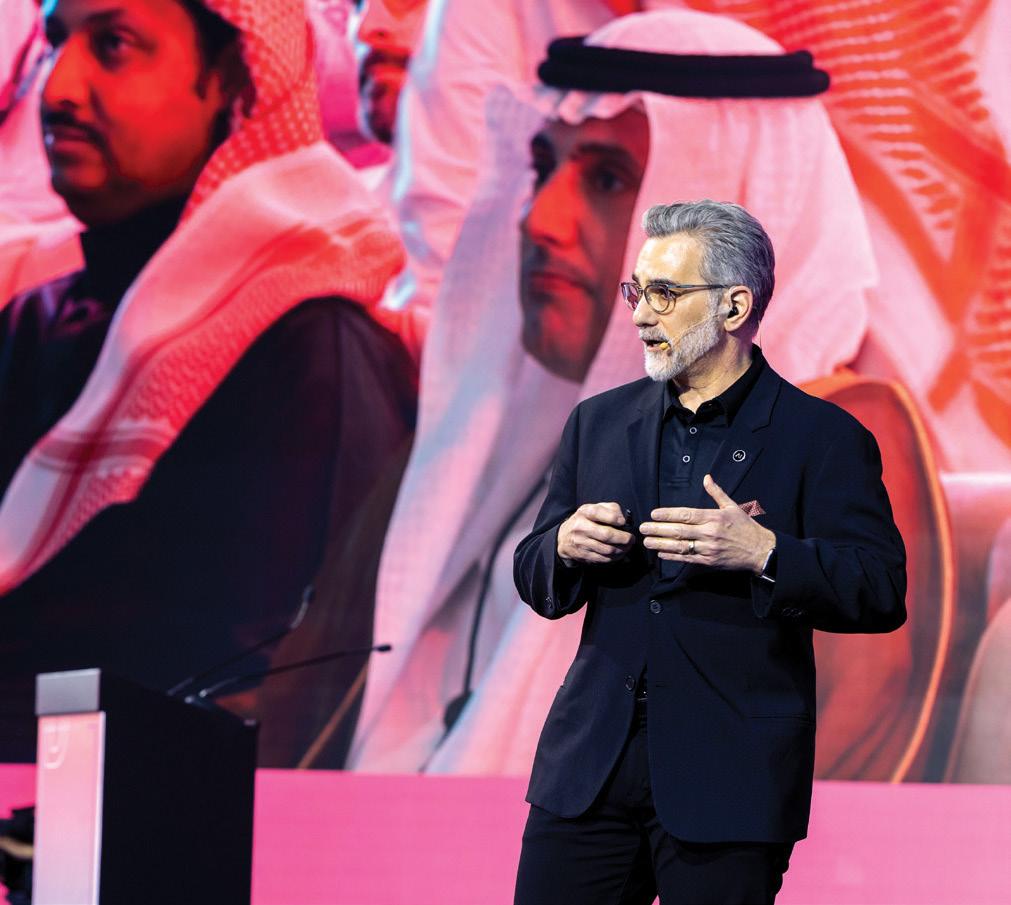
LEAP2025 WILL OFFER MANY CHANNELS FOR ATTENDEES TO CONNECT AND COLLABORATE, WITH SOME OF THESE OPPORTUNITIES INCLUDING:
AI-powered matchmaking:
The LEAP2025 app pairs 1,600+ investors with 680+ vetted startups by interests and funding preferences.
Unmatched deal flow:
Tier-1 investors get a concierge-style introduction to top Rocket Fuel founders.
Exclusive networking opportunities:
Curated masterclasses, bonfire sessions, and Ecosystem Xchange events with partners like Carta, Endeavor, NVIDIA, Angel School, and Magnitt.
Investor-focused forums:
Spaces like the Investor Lounge, Angel Forum, Crowdfunding Forum, and Family Office Forum allow investors to share deal flow, explore co-investments, and build relationships across the full investment cycle.
“DeepFest 2025 will explore how AI is transforming every sector and translate advancements into tangible solutions for a brighter future,” says Mander.
This year, LEAP 2025 is further introducing SportsTech, a dedicated content track exploring the intersection of sports and technology. The debut of this vertical underscores Saudi Arabia’s commitment to advancing professional sports as part of its Vision 2030 goals, which aim to diversify the economy and position the Kingdom as a global hub for innovation.
Saudi Arabia’s rapid emergence as a global sports hub provides a fitting backdrop for SportsTech at LEAP 2025. From hosting the FIFA World Cup in 2034 to major events such as the Jeddah F1 Grand Prix and high-profile boxing matches, the kingdom is proving its ability to deliver world-class sporting experiences. These achievements are underpinned by significant investments in technology, which are reshaping sports culture and production on a global scale.
At LEAP 2025, SportsTech is set to bring together industry leaders, athletes, and investors to explore how technology is transforming sports at every level.
Hosting the stage will be former France and Manchester United football legend Patrice Evra, who will be joined by more than 30 highprofile speakers and participants.
Among the confirmed names are Javier Tebas, president of LALIGA; Dominic Thiem, Grand Slam tennis champion; and Casper Stylsvig, chief revenue officer of Chelsea FC.
Representatives from global organisations like Formula E, the ATP Tour, Newcastle United, and the F1 McLaren Racing Team will share insights into how cutting-edge technology is enhancing performance, fan engagement, and sustainability in sports.
“Sports tech is revolutionising the way we play, train, and experience sports,” said Iker Casillas, Spain and Real Madrid’s legendary goalkeeper, now an active investor and startup accelerator.
Attendees will also have the chance to meet sporting icons like Italy’s Andrea Pirlo, Francesco Totti, and former Arsenal midfielder Mathieu Flamini, who has since transitioned to becoming a biotech entrepreneur.
The SportsTech stage will cover a wide range of topics, including:
AI AND DATA ANALYTICS
How sports organisations are leveraging data to improve player performance and optimise game strategies.
AR/VR TECHNOLOGY
Innovations in fan engagement, allowing audiences to experience sports in immersive new ways.
SUSTAINABILITY
How tech is helping make global sporting events greener and more efficient.
NEW BUSINESS MODELS
Exploring innovative revenue streams and investments reshaping the sports industry.
SportsTech at LEAP 2025 is also attracting major investors, such as Apex Capital, known for its partnerships with figures like McLaren F1 driver Lando Norris and professional boxer Anthony Joshua. Their presence underscores the growing interest in how technology is driving the next chapter in sports innovation.
Recent forecasts by Predence Research indicate that the global sports technology market is projected to grow by 21 per cent annually, reaching a value of $117.93bn by 2034. With
LEAP has quickly established itself as a cornerstone of the Kingdom’s strategy to become a global hub and meeting point for innovation.
Behind its success is a partnership with Tahaluf, which has played a pivotal role in elevating the country’s events industry to new heights.
Tahaluf is a strategic joint venture between Informa, the Saudi Federation for Cybersecurity, Programming and Drones (SAFCSP), and the Events Investment Fund (EIF), thereby bringing together a number of key stakeholders.
“Tahaluf’s collaboration with LEAP has been a
game-changer for Saudi Arabia’s events industry,” explains Abdulaziz Alghurayr, director of office and government liaison.
“ Tahaluf’s key contributions include curating an impressive lineup of global tech leaders, facilitating partnerships between local and international
such exponential growth on the horizon, Saudi Arabia is positioning itself as a key player in this space, leveraging technology to enhance its sporting events and attract global attention.
There’s no doubt that there’s a lot on the go for the team Tahaluf as it continues to build out one of the region’s biggest technology events.
Looking ahead, the company has big ambitions.
“Our focus is on remaining adaptable and responsive to emerging technologies, ensuring our content, speaker lineups, and specialized programs keep delivering genuine impact. We also benefit from strong partnerships with MCIT and SAFCSP, which help transform innovative ideas into real-world opportunities,” says Mander.
“Looking ahead, I expect to see even more advancements in AI, Fintech, Renewal Energy and Biotech, which will continue to evolve and revolutionize how we interact with the broader tech ecosystem. On a personal note, I’m especially proud of how LEAP has accelerated Tahaluf’s growth. “We now have over 100 LEAP dedicated employees in Riyadh. I feel incredibly lucky to work with such a talented, high-performing group, and I’m excited to see how we’ll keep shaping LEAP’s future and driving innovation in the years to come,” she concludes.
companies, and creating opportunities for Saudi youth to engage in the tech ecosystem through workshops, hackathons, and mentorship programmes. These efforts have elevated the quality and scope of events in the kingdom, aligning them with international standards,” says Alghurayr.
Crucially, LEAP is closely tied to the goals of Vision 2030, Saudi Arabia’s roadmap for economic diversification and knowledgebased development.
“LEAP 2025 is a direct reflection of Vision 2030’s ambition to diversify the economy and establish Saudi Arabia as a leader in technology and innovation,” says Abdulaziz Alghurayr.
“LEAP encourages investment in emerging technologies like AI and fintech, which are critical to building a sustainable, knowledgebased economy. Furthermore, it supports the development of digital infrastructure and the empowerment of Saudi youth, particularly in STEM fields, which are central to Vision 2030’s goals,” he notes.
Alghurayr further acknowledges that Saudi authorities have been instrumental in LEAP’s success. From facilitating partnerships with global organisations to providing funding and ensuring senior officials participate in the event, the government’s involvement has created an environment where LEAP is viewed as a priority for the nation’s development.
“Government entities have actively participated in planning and executing the event, ensuring alignment with national priorities,” adds Alghurayr.
Amid this support, the scope of the event is also deepening, with a special focus on AI via DeepFest as well as a new sportstech focus.
A s Saudi Arabia prepares to host LEAP 2025 in Riyadh, tech giants are eager to showcase their latest innovations. Intel, Genesys, and Forcepoint each highlight how the event aligns with their strategic goals — whether it’s advancing AI, revolutionising customer experiences, or fortifying data security in an increasingly digital world. We spoke to key leaders from these companies about what to expect from the event and how they plan to lead the charge in shaping the future of technology.

Compiled by: Neesha Salian
Intel is excited to participate in LEAP 2025, scheduled for February 9-12, in Riyadh, Saudi Arabia. For Intel, LEAP 2025 offers a strategic platform to showcase its latest technological advancements and engage with a diverse audience of industry leaders, innovators, and investors. The event’s focus on cutting-edge technologies such as artificial intelligence, cloud computing, and smart cities aligns with Intel’s core business areas, providing opportunities to explore collaborations and partnerships.
TAHA KHALIFA , GM Middle East and Africa, Intel
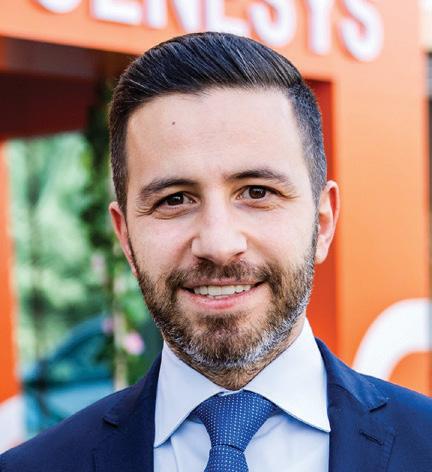
LEAP 2025 is a great opportunity for us to present the future of customer experience and how Genesys is transforming this space through AI-powered Experience Orchestration. We’re excited to showcase how the Genesys Cloud platform enables businesses to deliver personali s ed and seamless customer service across every touchpoint. With innovations in AI, chatbots, and analytics, we can help businesses improve engagement and enhance satisfaction. At LEAP, we’ll demonstrate how companies can harness the power of intelligent automation to optimi s e their customer journeys, reduce operational costs, and drive growth.
AHMAD SIDAWI , country manager, Saudi Arabia and Bahrain, Genesys

As one of the most prominent technology shows in the region, participating in LEAP Saudi Arabia offers an opportunity to reiterate the importance of data security in the digital world . While AI has quickly become integral to business operations, the ongoing AI transformation has only amplified the reality that data is every organisation’s top asset — which is why protecting it everywhere is critical. Coupled with shifting global regulatory requirements , it is crucial for businesses to understand how to proactively bolster their data security posture.
“Our objective at LEAP is to collaborate with our partners across Saudi Arabia to highlight how our Data Security Everywhere approach empowers organi s ations to securely and compliantly navigate their unique digital and AI transformation . Prioritising data security wherever it resides has proven to be essential – specially as the Saudi Arabia continues to elevate into the global AI sector through initiatives like Vision 2030 and Project Transcendence. This year, we’re focused on investing in technology that delivers complete endpoint data protection, visibility and control of high-risk data, secure web usage, and secure SaaS app usage. Through our advancements in DLP, DSPM, SWG and CASB technologies, we are working with partners across the region to deliver real-time visibility and control without compromising user productivity.
“ LEAP provides the ideal space to demonstrate how organisations can innovate confidently while tackling the growing demand for data security. It’s also a platform for collaboration, allowing us to exchange insights, engage with forward-thinking partners, and explore solutions to today’s most pressing cybersecurity challenges.
SAMER
DIYA , META VP, Forcepoint
By Neesha Salian
With 2025 off to busy start, experts across the tech industry are pointing to transformative shifts in AI, cybersecurity, and cloud computing, with a particular focus on the Middle East and North Africa. From AI-driven security solutions to cloud innovations and the rise of quantum computing, regional leaders at companies like SentinelOne, NTT DATA, and Omnix International share insights on the emerging technologies that will drive the future of business, governance, and sustainability. Key themes include the need for proactive defences, personalised healthcare solutions, and the seamless integration of AI into everyday processes. With the Gulf region positioning itself as a global tech hub, these advancements are poised to not only elevate industries but also address complex regional challenges.
MERIAM ELOUAZZANI , SENIOR REGIONAL DIRECTOR META, SENTINELONE

In 2025, we’re poised to see transformative advancements across several critical areas in tech, and my hope is that we’ll make strides toward seamless, secure, and responsible technology integration that empowers both organisations and individuals. AI will continue reshaping industries, unlocking efficiencies, and enabling new capabilities, yet it will demand strong ethical frameworks to guide its responsible use. In cybersecurity, I anticipate a shift toward proactive, AI-driven defences that not only detect but anticipate and prevent sophisticated threats, ensuring resilience against emerging risks. This approach will be key as digital threats evolve, allowing organisations to stay one step ahead. Cloud computing, meanwhile, will support this evolution by enhancing scalability and accessibility, making advanced tech solutions more available across sectors.
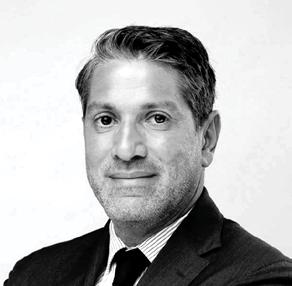
RAMI BEIDAS , COUNTRY GENERAL MANAGER FOR SAUDI ARABIA AT NTT DATA MEA
Cybersecurity’s future will focus on proactive defences, with AI-driven predictive analytics identifying threats in real-time and quantum-safe encryption protecting data from new computing powers. Behavioural security training will address human vulnerabilities, reducing risks from errors and social engineering. AI’s evolution includes generative and explainable AI, enhancing industries from entertainment to healthcare while prioritising fairness and transparency. Rather than replacing jobs, AI will support human roles, enabling collaborative efficiency. Cloud computing will see a shift toward edge and multicloud systems, supporting low-latency needs for IoT, autonomous vehicles, and smart cities. Organisations will rely on hybrid cloud strategies to balance flexibility and resilience. Green cloud initiatives, driven by demand for sustainability, will prioritise renewable energy and eco-friendly data centres. Altogether, these innovations support secure, transparent, and sustainable technology ecosystems that drive modern business and society. In the Middle East, the adoption of cybersecurity, AI, and cloud computing technologies is accelerating, driven by regional goals for digital transformation, economic diversification, and sustainability.

CHESTER WISNIEWSKI , DIRECTOR AND FIELD CTO, SOPHOS
Supply chain attacks are making a comeback. This year, one of the biggest cybersecurity events was a ransomware attack on CDK, a software firm widely used by car dealerships. The incident disrupted thousands of dealerships across the US for over a week, highlighting how attacks on the software supply chain can have widespread consequences far beyond the initial target. North Korean attackers are also innovating, adopting a ‘double dip’ strategy by stealing both cryptocurrency and sensitive documents for continued exploitation. They are even running job scams, posing as recruiters to distribute malware. As the security community adopts new defences, cybercriminals are adjusting their tactics. With many organisations using endpoint detection and response (EDR), ransomware groups are focusing on cloud assets instead. Multi-factor authentication (MFA) has made account compromise more difficult, so criminals are increasingly targeting cloud assets, which often lack MFA, along with focusing on authentication tokens and browser cookies rather than traditional passwords.
SCALING AI USAGE WILL BE CRUCIAL, PARTICULARLY IN CYBERSECURITY, WHERE AI CAN ENHANCE DEFENCE MECHANISMS AND EMPLOYEE PRODUCTIVITY.”
MOHAMMED AL TENBAKJI , FOUNDER OF SECURE DOMAINS
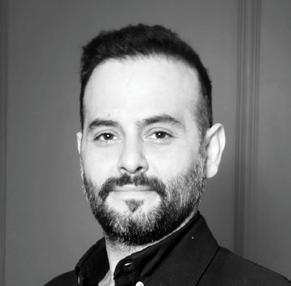
DNS security has become essential as DNS-based attacks grow more frequent and complex. DNS, which enables the lookup of internet services, is a critical protocol at the heart of online communication and a prime target for cybercriminals seeking unauthorised access, data exfiltration, and control. With the acceleration of digital transformation, cloud adoption, and remote work, protecting the DNS layer is crucial for safeguarding data and ensuring network resilience. In response, DNS Detection and Response (DDR) has emerged, providing foundational visibility and serving as the first line of defence against DNS-based threats. DNS Armor leads the way in DDR, helping organisations protect against DNS data exfiltration, DNS tunnelling, DNS command and control, and phishing attacks that evade traditional security. Our unique AI-driven detection module continuously analyses traffic patterns to detect and block malicious domains and tunnelling — covert channels used to exfiltrate data by bypassing firewalls. DNS Armor also supports multi-tenancy, enabling efficient, centralised management across multiple clients or departments, giving organisations flexibility and control. With proactive monitoring, deep visibility, and automated responses, DNS Armor equips organisations to stay ahead of evolving threats and confidently secure their networks in today’s high-stakes cyber landscape.
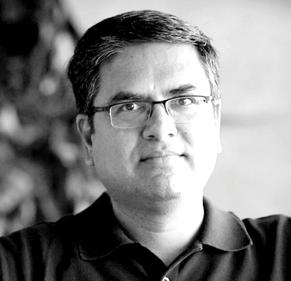
RAJESH GANESAN , PRESIDENT, MANAGEENGINE
In 2025, we expect organisations to view emergent technologies as no longer an alternative but an active driver for business success. We believe IT will shift towards an outcome-driven approach, aligning technology investments with business results to demonstrate clear value beyond operational metrics. Scaling AI usage will be crucial, particularly in cybersecurity, where AI can enhance defence mechanisms and employee productivity. We also expect cybersecurity to be democratised, making every employee accountable for security. Prioritising training and providing self-service tools and services will equip employees with more cybersecurity awareness. The aim of these security initiatives should be to minimise human error, which still plays a big part in enabling modernday cyberattacks. We believe there is a need to decentralise compliance and provide a distributed governance model. This would empower each department to manage its risks while ensuring transparency and communication across the organisation. We’ll also see organisations prioritising and reengineering how they look at user experience. Leveraging AI and data analytics to improve customer and employee interactions while ensuring security will be one of the main priorities for next year, with the main challenge being to achieve this while retaining the aspect of usability. Finally, embracing sustainability will be a top priority. Adopting energy-efficient technologies and reducing carbon footprints not only meets regulatory requirements but also champions environmental responsibility and appeals to environmentally conscious consumers.
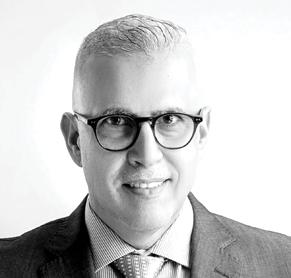
As we look to 2025, the integration of AI, cybersecurity, and cloud computing not only expands technology’s capabilities but underscores the critical need for additional training. We see AI advancing operational efficiencies and adaptive defence, but with it comes a rise in

complex threats that demand wellprepared professionals, not just software systems. Training programmes that emphasise hands-on, real-world scenarios are essential to equip teams with the skills to secure rapidly evolving, multi-cloud environments. Organisations
WALID GOMAA , CEO, OMNIX INTERNATIONAL
The advancement of emerging technologies such as artificial intelligence, cybersecurity, and cloud computing is driving transformative changes across industries at an extraordinary pace. AI is now enabling real-time decision-making, streamlining processes, and uncovering insights that were previously beyond reach. Simultaneously, the adoption of cloud computing has redefined business operations, delivering scalability, flexibility, and cost-efficiency. As these technologies evolve, so do the challenges, especially in the area of cybersecurity. The growing complexity of threats requires cutting-edge solutions and a proactive stance to protect the digital ecosystems. Looking ahead, the embrace of these technologies will define the next decade, unlocking doors to innovation, sustainability, and growth. Businesses that leverage these advancements today will position themselves as leaders in the future, tapping into their immense potential.
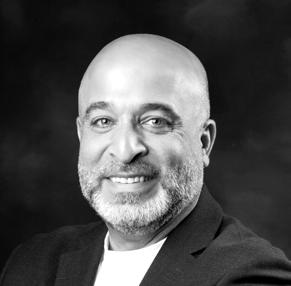
The common factor across these is that cloud has proven pivotal to the attacks’ success. As cloud infrastructure complexity increases and threat landscape targets rapidly shift, new and significant security gaps are emerging. To address the risk, organisations must address the “toxic cloud trilogy” of cloud workloads that are publicly exposed, critically vulnerable and highly privileged. Cloud security involves layers of defence to
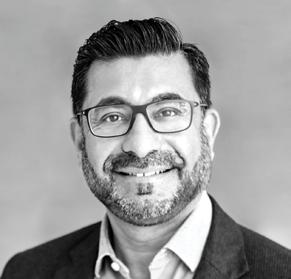
that prioritise upskilling in these areas will build resilience, ensuring they’re ready to protect against future challenges. As technology reshapes the landscape, continuous learning will remain the backbone of a secure, sustainable future.
VIJAY JASWAL , CHIEF TECHNOLOGY OFFICER, APJ, MEA - IFS
The future of technology promises a landscape shaped by rapid advancements in artificial intelligence, quantum computing, 3D printing, and sustainable solutions. AI is poised to revolutionise industries with increasingly autonomous systems, personalised healthcare, and natural human-machine interactions. For those sci-fi fans, I can see industrial derivatives of the Iron Man suit becoming a reality through industry 5.0 collaborations between machine and humans, leading to the augmented human worker in multiple industry verticals. Artificial intelligence has come a long way in the recent few years with the availability of increased compute power being made available. Imagine how sophisticated and exponentially powerful AI will get once it is powered by quantum computing! As 3D printer tech advances, supply chains will come closer to where materials are required. For example, 3D printers creating parts on-site, for instance, on an offshore oil platform — this will lead to quicker time to value with the overhead of time taken to get a part from A to B greatly reduced. Meanwhile, the push for sustainability is driving innovation in renewable energy, carbon capture, and eco-friendly materials. Emerging technologies like augmented and virtual reality, 6G networks, and autonomous transportation are set to redefine communication, entertainment, and mobility. Together, these advancements hold the potential to address global challenges while reshaping daily life.
JADALLAH , VICE PRESIDENT, MEA, TENABLE
prevent breaches if a given layer fails. A toxic trilogy effectively erodes these layers. Toxic cloud trilogy increases risk by making the workload’s weaknesses easier for attackers to exploit — and making the scope of exploitation potentially greater. Bad actors seek out critical vulnerabilities or publicly accessible assets. Finding one, they can commandeer highly privileged permissions or roles to burrow their way in, accessing
— and even exfiltrating — sensitive data. For example, an attacker can modify access policies or elevate privileges, moving laterally and deploying resources to gain access to even more sensitive areas. We can’t know what a malicious actor will do next, so we must control what we can. Security teams need context to unmask and prioritise security gaps like the cloud toxic trilogy, and close such exposures swiftly.
Rubrik’s Bipul Sinha discusses AI-powered data security, innovation and cyber resilience in the cloud era
By Neesha Salian

CEO
In an exclusive interview with Gulf Business Tech, Bipul Sinha, CEO of Rubrik, highlights the company’s leadership in AI-driven data security and its commitment to safeguarding businesses against evolving cyber threats.
From cutting-edge AI tools like Ruby to global partnerships and new product launches, Sinha explores how Rubrik is transforming data protection for the future.
How does Rubrik incorporate emerging technologies like AI, machine learning, and automation to enhance its cloud data platform?
Companies are racing to adopt AI solutions while vast amounts of their proprietary data are moving to the cloud. To protect their critical information, whether in the cloud, on-prem, or software-as-a-service (SaaS), companies need a powerful combination of data security and AI. We tell our customers the best defence against AI-driven threats is to fight fire with fire: use AI-powered security solutions to combat AI-powered attacks.
Rubrik is the market leader in cyber resilience. We’re constantly pushing the boundaries of what’s possible in data security. Our Data Threat Engine, built on an AI foundation, and our data security posture management (DSPM) solution, are two prime examples of how we’re leading the charge. These solutions not only detect threats in real time, but also help businesses safeguard their data while ensuring compliance with responsible AI practices, regardless of where the data lives. We’ve also taken a huge step forward by introducing Ruby — our generative AI-powered agent — to help customers achieve high productivity by quickly remediating and recovering from cyberattacks.
And we’re not stopping there. At AWS re:Invent 2024, we announced Rubrik Annapurna for Amazon Bedrock, a game-changing technology designed to offer
customers secure access to all enterprise data for their GenAI applications. With this anticipated API service, we aim to combine security with GenAI to give customers the confidence their data is secure — no matter where it lives–while they tap into the full potential of AI.
Tell us about the new offerings from Rubrik. Cyber criminals know no boundaries. This means we must innovate on a global scale to anticipate and respond to our customers’ evolving needs. In the Middle East, and across the globe, Rubrik’s mission is to protect the world’s data and enable businesses to keep running even in the face of cyberattacks.
In the last two months alone, we’ve announced significant partnerships and new capabilities including:
RUBRIK DSPM FOR M365 COPILOT: This offering not only helps businesses reduce the risk of sensitive data exposure, but also accelerates the secure adoption of Microsoft Copilot. Leveraging Rubrik’s advanced classification engine, continuously and autonomously discover and classify all known and unknown data while ensuring the right access permissions. This enhances Microsoft Copilot’s capabilities while safeguarding sensitive data from the risk of exposure.
FIRST TO INTEGRATE WITH OKTA’S IDENTITY
THREAT PROTECTION: Rubrik is the first data security platform of its kind to integrate with Okta’s Identity Threat Protection. This integration enables Rubrik Security Cloud to provide deeper visibility into user access to data, automatically monitoring changes to access permissions for sensitive data. Together, we empower organisations to better manage risks around sensitive data access and respond to identity-based attacks faster and more effectively.
PARTNERSHIP WITH PURE STORAGE: We also announced a new partnership with Pure Storage to deliver complete cyber resilience, combining our technologies to deliver a secure approach to data protection across short-term and long-term storage needs. Together, we help our customers reduce backup times from hours to minutes and Rubrik allows Pure customers to find anomalies, hunt for threats, and discover sensitive data in their production environment.
How does Rubrik balance the need for secure data management with the growing shift toward multicloud and hybrid-cloud environments?
With an increase in cloud adoption, comes the increased need for secure data management. However, hosting secure data across multiple environments becomes all
Rubrik’s 100 per cent channel-driven go-to-market strategy is underpinned by significant investments in a region’s preferred system integrators, managed service providers, and channel partners
the more challenging. It’s important for organisations to have strong protection across hybrid and multicloud environments. Rubrik has been leading the way in providing seamless data protection, no matter the infrastructure. Our platform is designed with flexibility in mind, supporting SaaS, cloud-native, and on-premise deployments, making cloud a top priority.
We’re committed to enhancing the protection and recovery of sensitive information through our cloud architecture and AI-powered solutions, especially as cyber threats continue to evolve. Our machine learning algorithms constantly analyse backup snapshots for any unusual activity, helping us spot potential threats before they grow into serious issues. We also utilise AI to enable quick recovery from attacks, so organisations can easily search for specific data points and restore them efficiently. This empowers businesses to safeguard their data across different environments without sacrificing control or security. By ensuring comprehensive data protection, we assist enterprises in staying resilient while they embrace their cloud transformation journeys.
One example, specifically addressing hybrid cloud resilience, is our recently announced Microsoft Blob Storage, bringing enhanced security posture and recovery to Blob customers. Setting a new standard for data resilience, by integrating with Microsoft 365 and Microsoft Copilot for Security, we have strengthened protection within the Microsoft Ecosystem.
As more organisations move to the cloud, what are the biggest hurdles that businesses face when it comes to data management and cybersecurity?
One of the most difficult challenges regarding data management and cybersecurity is knowing where your data is stored, what is the sensitivity of the content and how it is secured. Our DSPM addresses the issue of businesses storing sensitive data in multiple environments, and types of cloud storage technologies. The more locations in which data is stored, the greater the threat of exposure.
Rubrik’s DSPM capability supports businesses in monitoring access to their data and by providing governance around it, in order to have strong control measures in place regarding who can use it.


The cloud data management and cyber recovery industry is evolving rapidly. What are some of the major Middle Eastern market trends you’re closely watching over the next few years?
The Middle East’s fast-growing economy has not only transformed the region, but has also increased the threat of cyber attacks. As the volume of data grows exponentially, due to the surge in digital transformation and new business, the need for companies to have robust cybersecurity measures in place is all the more important.
While AI can be used to mitigate risks and continuously monitor threats, it is important to note that AI can be used by attackers in order to lower barriers to entry and therefore be easier to breach.
Managing and securing a diverse range of data, across sectors, and across interconnected technologies will only be protected if businesses deploy a complete cyber resilient approach to their applications and infrastructure. In the region, our priority is to enhance data security while empowering organisations to build resilience against evolving cyber threats. Alongside this, our commitment to the region also includes investing in local talent and partnerships to tailor our offerings to the unique challenges faced by businesses in the Middle East.
Rubrik has expanded globally. What challenges and opportunities have you encountered as you’ve scaled the business?
Our 100 per cent channel-driven go-to-market strategy is underpinned by significant investments in a region’s preferred system integrators, managed service providers, and channel partners. This heavy investment underscores our commitment and trust in these partners, placing us in a unique position to educate our customers about the ever-changing cyber security landscape.
Is there anything else you’d like to share about Rubrik’s future vision?
Rubrik is defining the future of cybersecurity. Our Q3 results announced in early December demonstrate our commitment to our relentless focus on innovation and creating the next horizon for Rubrik.
We surpassed $1bn in subscription annual recurring revenue, an incredible milestone thanks to our employees, customers, partners, and investors for their continued support.

BY VIDHITHA KANAKAMEDALA AND GERGANA RANGELOVA
ith core connectivity revenues plateauing, telcos are at a crossroads. The B2B ICT services domain represents a crucial growth opportunity but also a challenge. Unlike the established telecom business, ICT requires agility, customer focus, and continuous innovation.
We’ve observed that telcos face a strategic dilemma: Should they integrate ICT into their existing operations, establish a standalone entity, or pursue a hybrid model? Each option carries distinct benefits and risks.
Integrated model: Keeping ICT services within the telco’s existing operations allows for cross-selling, brand leverage, and seamless use of existing customer


relationships. Verizon’s approach exemplifies this strategy. By merging core connectivity with ICT services, Verizon shifted from product-based sales to solution-based engagements, strengthening customer relationships and unlocking new revenue streams.
COLLABORATION AGREEMENTS BETWEEN THE CORE TELCO AND ICT ENTITY SHOULD ADDRESS SALES, SOLUTION DEVELOPMENT, AND CUSTOMER SUPPORT. THESE AGREEMENTS REDUCE OPERATIONAL FRICTION AND ENHANCE SYNERGIES.
However, integration may limit the agility essential to ICT’s fast-moving landscape.
Independent model: This approach involves setting up a fully independent ICT entity. It enables the agility, innovation, and entrepreneurial spirit of a tech firm. Deutsche Telekom’s T-Systems exemplifies this model. As a distinct unit, T-Systems forged partnerships with top software providers and adopted an agile, customer-first approach, allowing it to quickly respond to market shifts. But total independence poses risks like brand dilution, operational complexity, and reduced synergies with the parent company.
Leveraged model: A balanced approach, this model allows the ICT business to operate semi-independently while leveraging the parent’s infrastructure, brand, and customer base. Saudi Telecom Company’s Solutions by stc follows this path. As an independent entity, it benefits from STC’s client access while maintaining the agility of a startup. It’s a “best of both worlds” approach, but balancing autonomy with shared resources requires careful coordination.
The decision to adopt the right model for ICT diversification is influenced by various strategic factors such as market maturity, agility, strategic goals, financial priorities, brand, talent, and governance needs.
The real challenge lies not only in selecting a model but also in executing it. To succeed, telcos must shift from fixed pricing to value-based pricing linked to outcomes like revenue growth or operational efficiencies. This transformation calls for changes in operating models.
The cultural shift is equally significant. Telcos must adopt the agility of tech firms, retraining existing staff and bringing in fresh talent to drive innovation.
THE RIGHT MODEL FOR ICT DIVERSIFICATION IS INFLUENCED BY VARIOUS STRATEGIC FACTORS
SUCH AS MARKET MATURITY, AGILITY, STRATEGIC GOALS, FINANCIAL PRIORITIES, BRAND, TALENT, AND GOVERNANCE NEEDS
Clear service scope: Define the ICT entity’s scope. Will it be a full-service provider or specialize in cloud, cybersecurity, or managed services? This clarity shapes branding, operational focus, and market strategy.
Governance and delegation: Clear governance ensures that decision-making is efficient and aligned with corporate goals. This is critical in leveraged and independent models where autonomy must be balanced with strategic alignment.
Aligned incentives and KPIs: Ensure that incentives for C-level executives and account managers support cross-selling and ICT growth. Performance metrics should align with broader corporate goals.
Collaborative agreements: Collaboration agreements between the core telco and ICT entity should address sales, solution development, and customer support. These agreements reduce operational friction and enhance synergies.
Agile processes: Integrated models benefit from streamlined workflows, while independent entities need agile processes to stay competitive. Leveraged models require a hybrid approach that balances structure with flexibility.
Advanced tools and technology: Tools and platforms must support ICT service delivery and innovation. Shared platforms boost collaboration in integrated models, while independent models thrive on standalone systems. Hybrid models require tools that foster cross-entity collaboration.
B2B ICT services offer telcos a unique opportunity to move beyond connectivity and become transformation partners for businesses. Success lies in selecting and executing the right model—be it integrated, independent, or leveraged.
The telcos that confront this challenge headon and act decisively will secure their role in the future digital economy. This shift from connectivity providers to transformation enablers represents a profound evolution — one with high stakes but equally high rewards.
The writers are principals at Arthur D. Little.

GENAI CAN EXPOSE THE BUSINESS TO MANY RISKS, RANGING FROM PRIVACY VIOLATIONS TO AN ARRAY OF DATARELATED PREJUDICES THAT CAN ARISE WHEN BUILDING AND USING MACHINE-LEARNING MODELS
BY ADAM SPEARING
eisenberg’s Uncertainty Principle tells us there is trade-off between certainties of measurement. The more accurately we measure position, the less accurately we can measure momentum, and vice versa.
Artificial intelligence (AI) suffers from a similar balancing act between responsive and responsible AI. Business leaders want insights before competitors come to the same conclusions. But they are also faced with appeasing customers, employees, investors, and regulators on the issue of responsible AI.
Unlocking the benefits of generative AI (GenAI) can expose the business to many risks, ranging from privacy violations to an array of data-related prejudices that can arise when building and using machine-learning models. How does the CIO solve this trade-off?
Like any new tech, GenAI’s adoption does not come
without challenges and risks. Brand image is at stake, so it is to the advantage of every AI adopter to consider the risks to security and customer privacy before taking any steps toward adoption.
GenAI’s risks stem from its dual role as both an inward- and outward-facing tool. Increasingly, organisations are going beyond cost optimisation to transform external customer interactions.
If CIOs can get the inward-outward balance right, they can reap the rewards from their GenAI investments and deliver new value for the business. To accomplish rapid response while adequately managing risk, data governance will be critical, as will a coherent AI vision that accounts for the current tendency to overestimate GenAI’s short-term impacts and underestimate its longer-term potential.
This is not a new mistake unique to GenAI. It has become something of a tradition with emerging technologies. However, with GenAI it becomes a potentially critical error. If we, say, rush to reinvent processes for the sake of efficiency, we may overlook vital issues of data integrity.
Given the potential risk of a data breach, CIOs seeking to maximise the value of GenAI at speed and scale must never take their eyes off the importance of data security.
To properly address the Great GenAI trade-off between responsiveness and responsibility, enterprises must begin and end with governance. CIOs must come to see data and AI governance not as manuals that are written once and rigidly followed thereafter. Policy must be elastic — subject to change as, for example, the CIO’s relationship with risk officers changes.
Culture, including the organisation’s approach to management, must also change to fulfill the goal of maximising gains from GenAI while protecting the business, its people and its customers.
One way of plugging AI skills gaps in the GCC is to upskill from within. As low-code and no-code platforms have aided the rise of the citizen developer, challenges have emerged. GenAI represents a democratisation of development.
CIOs may need to reimagine their role in the organisation. They are now much more than just infrastructure stewards. They are data custodians who must pay due attention to both security and potential for innovation. The CIO must now lead on data governance, which starts with establishing the ability to identify the location of data in real-time. Tech leaders must comprehensively map and monitor each data source inside or outside the business.
This issue may be the greatest challenge in corporate IT today. While visibility has never been more critical, it has also never been more difficult. Data moves to serve the needs of providers and their customers.
And if tracking its current location is a challenge for the CIO, this presents a risk when it comes to protecting that data and maintaining its quality.
Verification and refinement are significant elements of responsible AI, so tech leaders must define and develop a forward-looking data strategy that is tightly coupled to business goals, but also imposes strict frameworks that ensure quality, privacy and security.
Sustainable success in AI requires a cultural shift. The CIO will be both AI champion and AI teacher, encouraging colleagues to look at data differently by highlighting the connection between it and business value.

By promoting data fluency, the CIO becomes a value creator. They will also engage with partners and peers to shape the market. They will make use of existing networks while creating new ones. Through this continuous learning, CIOs will improve their understanding of GenAI and what their priorities should be to maximise its value-add.
Within these knowledge-exchange networks, CIOs will find GenAI vendors who will come under increasing pressure to be transparent about how their algorithms operate, going so far as to allow their customers to inspect them. That transparency must extend to clear explanations of where data is stored, sent, and processed. And vendors will be expected to comment openly on how data can be managed within the complex and fast-moving regulatory environments we find in regions such as the GCC.
ONE WAY OF PLUGGING AI SKILLS GAPS IN THE GCC IS TO UPSKILL FROM WITHIN. AS LOW-CODE AND NO-CODE PLATFORMS HAVE AIDED THE RISE OF THE CITIZEN DEVELOPER, CHALLENGES HAVE EMERGED. GENAI REPRESENTS A DEMOCRATISATION OF DEVELOPMENT.”
GenAI represents an opportunity and a challenge for CIOs. Leaders must go back to the drawing board on data governance and put it front and centre. There is an opportunity for AI to play a role in data governance by continuously monitoring for potential vulnerabilities and operating autonomously to remedy them. It appears as if GenAI is not bound by limits in terms of what use cases it can satisfy. It will be up to the CIO to impose such limits in consultation with colleagues, as they decide where to deploy it, what roles should be reshaped, and what business processes should be optimised.
The stakes though are high. Mastering the responsiveness-responsibility trade-off means competitiveness and prosperity. Getting it wrong could mean the end of a brand.
The writer is the head of AI Innovation, EMEA at ServiceNow.

THIS PROACTIVE STANCE ON CLEAN TECH ISN’T JUST ABOUT ADDRESSING CLIMATE CHANGE — IT’S RESHAPING HOW ECONOMIC GROWTH CAN ALIGN WITH SUSTAINABILITY
BY MAXIM KAPLEVICH
he UAE is rapidly becoming a hub for clean tech, finding innovative ways to address ecological challenges. With strong support for advanced recycling technologies and a commitment to sustainability, the country is creating an environment where climate-focused ideas thrive. This includes a growing ecosystem of homegrown startups and global partnerships, generating solutions that tackle local environmental issues while offering scalable benefits.
TGlobally, there’s a growing trend of investing in climate-tech startups, with billions of dollars being poured into industries like green steel and nuclear fusion. The UAE is riding this wave, backing sustainable innovation through strategic investments and policies. Businesses are also stepping up, responding

to calls from consumers and investors to move away from fossil fuels and work toward net-zero emissions. This proactive stance on clean tech isn’t just about addressing climate change — it’s reshaping how economic growth can align with sustainability. With the right mix of resources, infrastructure, and a forwardthinking approach, the UAE is showing how innovation can pave the way to a greener, more sustainable future.
The UAE’s sustainability sector is driven by opportunities in recycling, renewable energy, water management, and sustainable construction. Backed by initiatives like the UAE Energy Strategy 2050, the country is working to diversify its energy sources and focus on long-term sustainability. With a target to triple its renewable energy share by 2030, the UAE is making clear progress toward reducing its carbon footprint and tackling global climate challenges.
Much like Silicon Valley’s tech ecosystem, the country is also developing an entrepreneurial environment that supports a shift from oil-based revenues to innovative, sustainable solutions. This was evident during COP28 in Dubai, where the spotlight was on climate tech, carbon offsetting, and the role of the private sector in driving sustainability forward.
People are at the heart of sustainability, and encouraging individuals to adopt greener habits is crucial for creating a lasting impact. Waste management through recycling is one of the most accessible ways for individuals to contribute directly to environmental preservation. In fact, recycling between 2020 and 2050 is projected to reduce emissions by 5.5 to 6.02 gigatonnes of carbon dioxide — an impact equivalent to removing over one billion cars from the roads for an entire year. While there are factories globally ready to process raw materials from recyclables, the key challenge lies in establishing the infrastructure for waste collection. Bridging the gap between consumer and recycling facilities is crucial in tackling global environmental issues. Clean-tech solution providers need to focus on building a collection infrastructure without directly engaging in recycling, instead incentivising individuals to participate.
Germany and Scandinavian countries have introduced deposit return systems to promote recycling, allowing consumers to get their deposit back when they return bottles. However, a model focused on positive reinforcement could yield better results. People
RECYCLING BETWEEN 2020 AND 2050 IS PROJECTED TO REDUCE EMISSIONS BY 5.5 TO 6.02 GIGATONNES OF CARBON DIOXIDE — AN IMPACT EQUIVALENT TO REMOVING OVER ONE BILLION CARS FROM THE ROADS FOR AN ENTIRE YEAR
THE UAE HAS STRONG POTENTIAL TO LEAD THE CHARGE TO PROMOTE SUSTAINABLE PRACTICES GLOBALLY. WITH PLANS TO INVEST DHS200BN ($54.5BN) IN CLEAN ENERGY, THE COUNTRY IS MAKING REAL PROGRESS TOWARD ITS 2050 CLIMATE GOALS.”
are more inclined to recycle when there is a tangible reward. By providing users with instant rewards, such as discounts on future purchases or services, it can create a more engaging and user-friendly experience.
For instance, with Sparklo, users earn points for recycling bottles and cans through AI-powered reverse vending machines. These are redeemable for future purchases with various local partners, motivating them to continue sustainable practices. This encourages behaviour change while making recycling an enjoyable and accessible habit.
One of the core challenges in recycling is the lack of proper infrastructure. Solutions need to deploy their products strategically in locations that are convenient for consumers, such as shopping centres, residential areas, and transit hubs to help reduce waste at its source.
Cleantech companies have the opportunity to present innovative solutions on a global stage, particularly in regions where established systems, such as deposit-based recycling, are not in place. While such systems often thrive in more affluent areas, scalable and adaptable models are essential to address waste management challenges across diverse economic and geographic contexts. This approach ensures that sustainable solutions can be implemented effectively, regardless of the region’s economic landscape.
The UAE has strong potential to lead the charge to promote sustainable practices globally. With plans to invest Dhs200bn ($54.5bn) in clean energy, the country is making real progress toward its 2050 climate goals. This focus on innovation has also created opportunities for local solutions to advance recycling technology, create jobs, and meet growing demand. These efforts highlight the UAE’s role in the global push for a more sustainable future.
The writer is the founder and CEO of Sparklo.








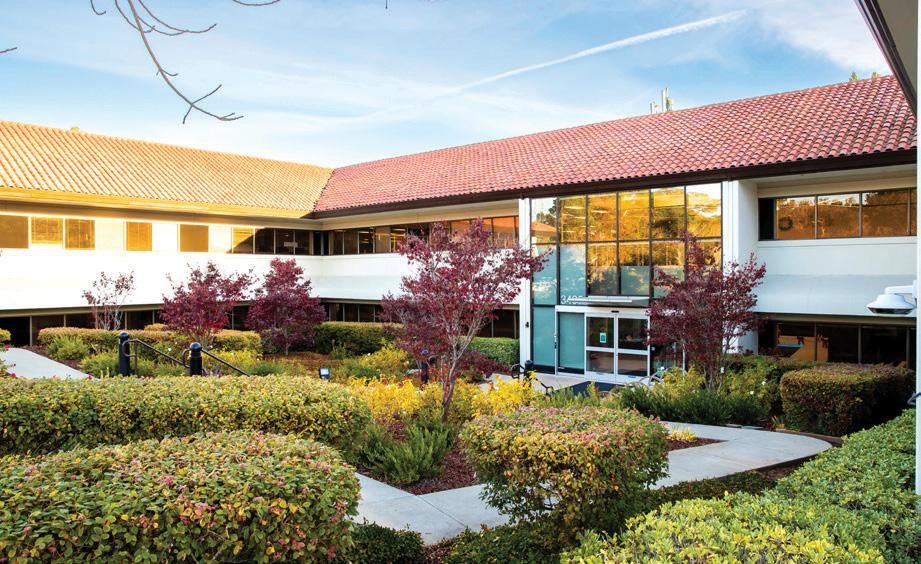
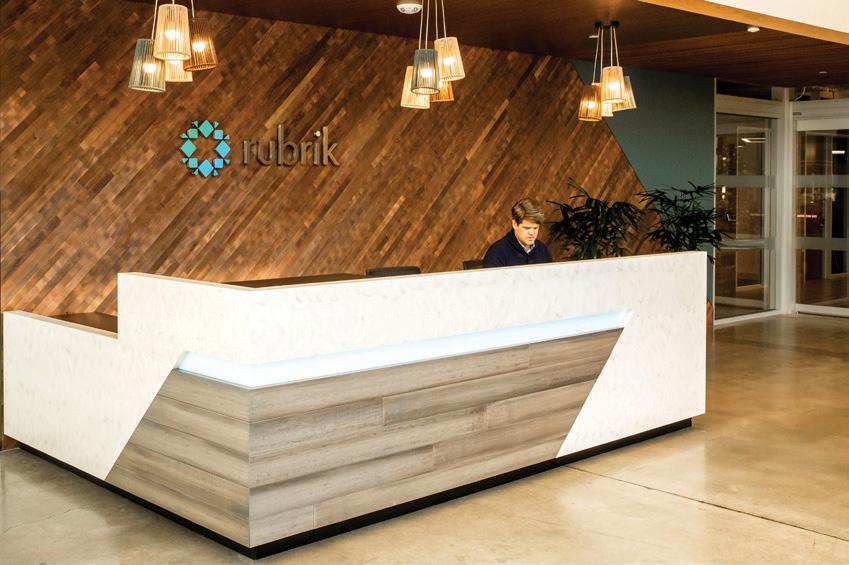












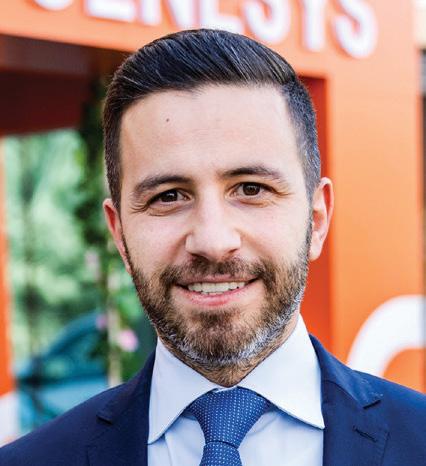
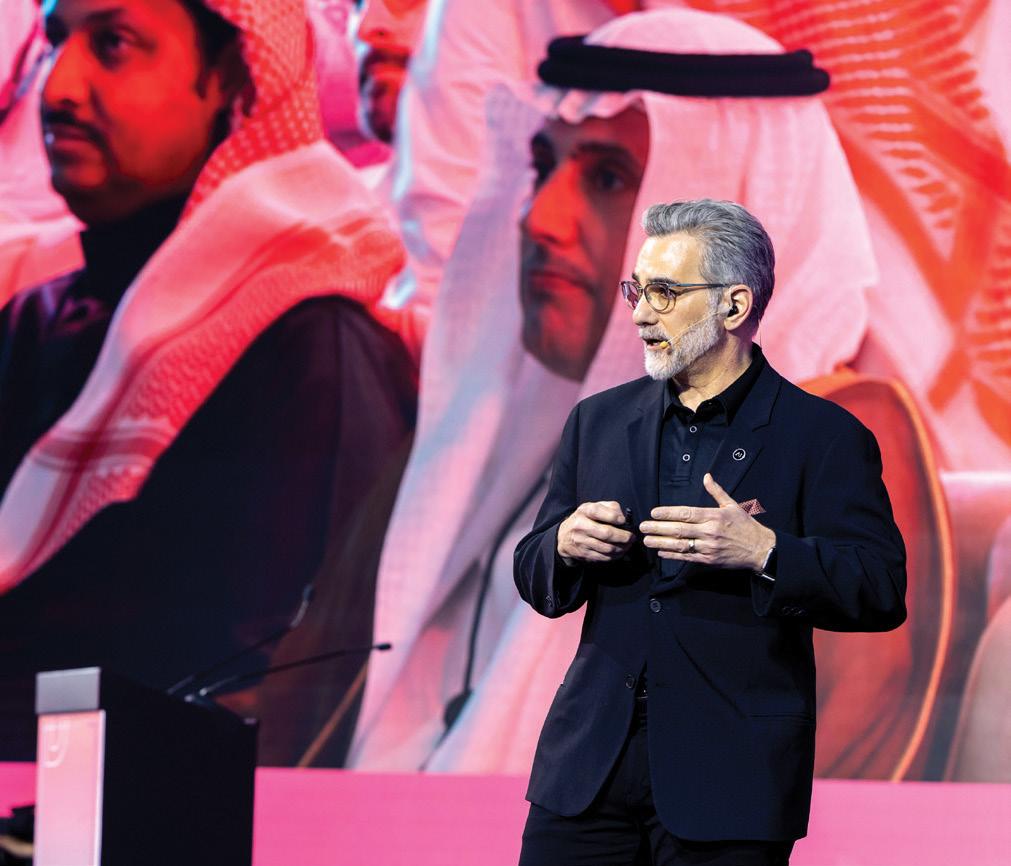







anthony@motivate.ae

manish.chopra@motivate.ae
gareth.vanzyl@motivate.ae
neesha@motivate.ae
kudakwashe.muzoriwa@motivate.ae
nida.sohail@motivate.ae

ahmad@motivate.ae
freddie@motivate.ae
mario.saaiby@motivate.ae
Get ready for insightful discussions and great networking opportunities as leaders across brands and agencies gather under one roof to set the scene for the marketing and creative advertising landscape for the months


DATE: February 7, 2025
TIME: 8:00 AM
VENUE: Grand Plaza Mövenpick, Media City


















